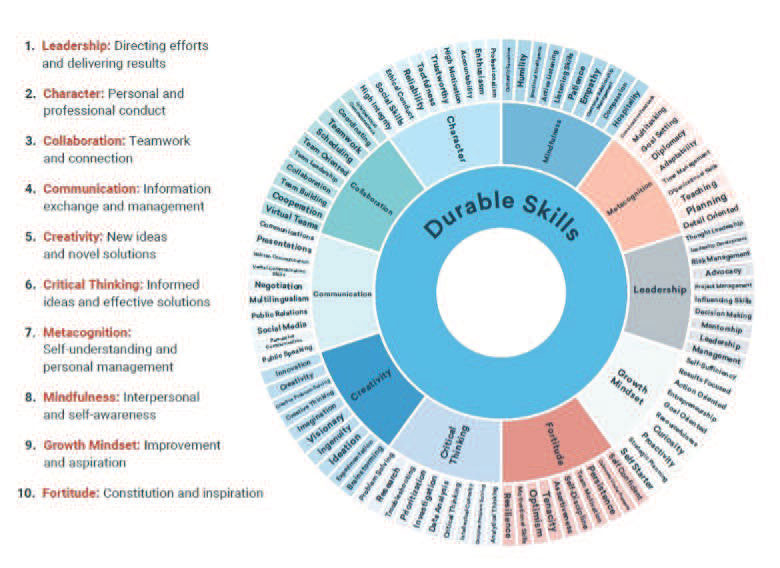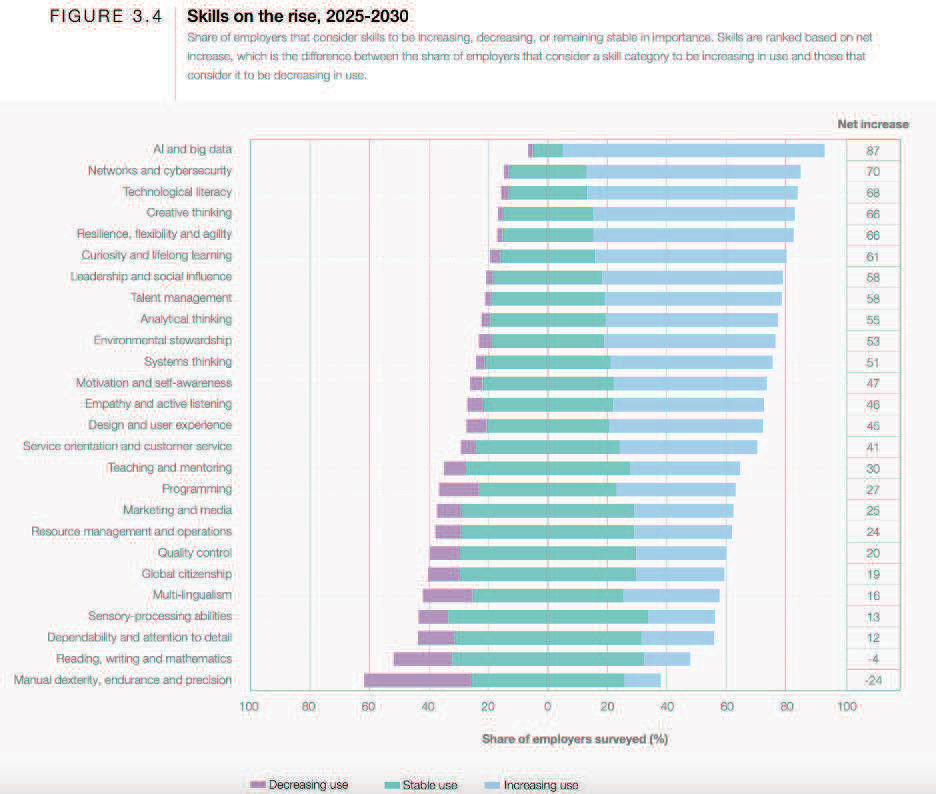Durable skills: The hardest asset in commercial PM
In the dynamic world of commercial property management, success isn’t just about maintaining buildings – it’s about managing relationships. Property managers are the linchpin holding together complex real estate ecosystems. Our multifacing role requires a unique skill set beyond technical expertise. And as technical skills continue to rapidly evolve, a core set of durable soft skills remains essential for long-term success. A growing body of research emphasizes the increasing demand for “durable skills” – competencies like communication, leadership, problem-solving and adaptability – which are proving to be critical for thriving in industries like commercial real estate management.
The rising demand for durable skills
Durable skills, often referred to as soft skills, have emerged as the most in-demand competencies across industries. According to “The High Demand for Durable Skills,” a report by America Succeeds, seven of the 10 most requested skills in job postings are durable skills, appearing more than four times more frequently than technical skills in Colorado job postings. This study also highlights that 49% of real estate job postings in Colorado required three or more durable skills, with communication, leadership and problem-solving topping the list.

Andrew Glaser
Director of Property Management
McKinsey’s article “Taking a skillsbased approach to building the future workforce” further supports this trend. Companies prioritizing skills-based hiring increasingly emphasize leadership, adaptability and critical thinking over traditional technical qualifications, such as formal educational degrees, industry specific certifications, and software skills. Additionally, the World Economic Forum’s “Future of Jobs Report 2025” outlines some of the most desirable durable skills – creative thinking, growth mindset, resilience and adaptability – as being right up there with AI, big data and cybersecurity as the skills most in demand between 2025 and 2030.
Property management: The ultimate test of durable skills
This shift is especially relevant in commercial property management, where daily interactions involve negotiation, conflict resolution and strategic problem-solving with multiple stakeholders. Success depends on the ability to navigate and balance the needs of multiple parties:
Tenants: Communication and conflict resolution. Tenants expect prompt responses, clear communication and fair resolutions to issues ranging from maintenance requests to lease negotiations. Effective property managers must be able to defuse tensions, convey complex information succinctly and foster long-term tenant relationships. McKinsey’s article “Reimagining people development to overcome talent challenges” highlights that companies focusing on developing strong communication skills see higher employee retention and customer satisfaction rates, underscoring its importance in client-facing roles.

Source: America Succeeds, The High Demand for Durable Skills
Landlords and investors: Leadership and strategic thinking. Landlords require property managers who can think like asset managers – prioritizing financial performance, risk mitigation and long-term value creation. This necessitates leadership skills and the ability to approach an asset with a strategic mindset. Harvard’s article “What works in workforce development and how can it work better?” points out that leadership-oriented professionals drive higher business performance, reinforcing why leadership is a crucial skill for property managers.
Vendors and contractors: Negotiation and relationship management. Property managers must collaborate with a network of service providers, ensuring quality work while managing budgets and deadlines. This requires negotiation skills, tenacity and resilience.
Bridging the skills gap in commercial real estate
Many property managers enter the field with a technical or administrative background but lack formal training in communication, leadership and problem-solving. Bridging this skills gap requires a multipronged approach:
Skills-based hiring practices. Even if candidates lack traditional property management experience, employers should prioritize strong durable skills.
Industry training and certifications. While CRE certifications (e.g., RPA, CPM) are valuable, incorporating durable skills training into property management education will enhance career readiness. Skills like strategic influence, active listening and leadership presence can be developed with groups like Vistage Worldwide. Time management and prioritization can be covered in the project management professional certification.
On-the-job development. Encouraging mentorship and role-playing conflict resolution scenarios can help property managers refine essential skills. Our firm holds a weekly practice – “What did we learn from this” – during which we share lessons learned from the field with our team. Building a common organizational philosophy around talent and skills will push your employees to achieve greatness.

Source: World Economic Forum, Future of Jobs Report 2025
Adaptability. McKinsey’s “Beyond hiring: How companies are reskilling to address talent gaps” article found that companies investing in workforce adaptability are significantly better at maintaining operational efficiency during market shifts. The article cites employees who experience strong organizational support and psychological safety, such that they feel comfortable taking risks and voicing concerns, are six times more likely to demonstrate innovative behavior, making adaptability a core business advantage.
The competitive advantage of durable skills
While our building technologies and office workflow continue to uplevel and automate, property managers should be focused on durable skills development. Jobs at the highest risk of automation have lower demand for durable skills, while careers aligned with the future of work – management, business operations, engineering – have the highest demand.
Incorporating durable skills into hiring, training and professional development isn’t just a trend – it’s a business imperative. Property managers who excel in durable skills will not only navigate these changes more effectively but also will position themselves as invaluable assets to landlords, tenants, and investors alike.
Special thanks to Teri Ososkie, Tanya Bouthillier, Katie Kier, Amanda Darvill and Jill Petrykowski for their assistance in uncovering and processing this topic with me.
[View source: here]